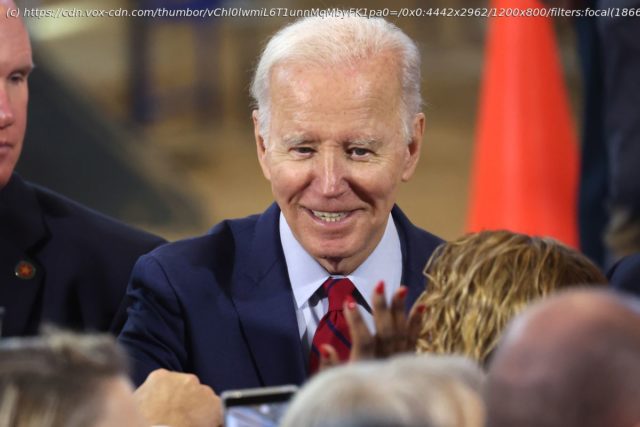Polls suggest Americans think one term is enough for President Joe Biden, but Biden may be Democrats’ best chance in 2024.
Joe Biden is officially running for president again — and if recent polls are any indication, most Americans are not thrilled about that news.
Despite a better-than-expected midterm election cycle, the president’s political weaknesses remain glaring. His approval rating is currently 42.5 percent in FiveThirtyEight’s poll average, and he’s never really been known for firing up voters with great enthusiasm.
Then there’s the age issue — he’s already 80 and would be 86 at the conclusion of a hypothetical second term. “It’s hard to ignore the toll of Biden’s years, no matter how hard elected Democrats try,” New York Times columnist Michelle Goldberg wrote earlier this year. All of these issues could imperil his chances of winning.
Biden also has some potent political strengths that shouldn’t be underplayed — and that may well be factoring into Democrats’ calculations to let him run unopposed. He’ll have the advantages of incumbency, and policy accomplishments he can tout. He has a track record of defying electoral doubters, most recently in those midterm elections last year. He notably has beaten potential GOP nominee Donald Trump once already.
But the factor that best explains his continued resilience is that the other options for the party don’t seem great either. Whatever Biden’s flaws, it’s far from clear which specific Democratic politician would be a better nominee, and whether that person could even win the nomination. And any attempt to supplant Biden in the primary would inevitably prove divisive and controversial, with history suggesting such efforts harm the winner’s general election prospects.
Biden previewed what a strong version of his campaign could look like at his State of the Union address, with a focus on economic nationalism and popular policies, and a contrast with Republican extremism. Yet the campaign won’t be fought entirely on his terms, and the downsides of his candidacy remain considerable. It’s just the downside of a running different nominee may well be even worse for Democrats.Listen here, Jack! The case for Biden.
Much of the case for Biden’s political strength hinges on looking at structural factors and historical patterns, rather than focusing too closely on how things are going right now.
For one, he’s an incumbent, and certain advantages come with that. Of the 31 incumbent US presidents who were renominated for the next general election, 11 lost and 20 won (with one of those 20, FDR, winning three times).
Those numbers may overstate the case a bit, since some politically weak presidents lost renomination in the 19th century, and others chose not to run for reelection. Still, the greater likelihood of incumbents to win elections is a long-running, well-documented pattern. Just recently, in the 2022 midterms, incumbents in both parties performed quite well. From that perspective, throwing away a potential incumbency advantage in favor of an untested candidate would be quite a risky move for Democrats.






